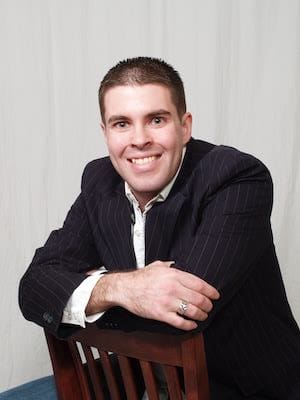Every Wednesday night, like many churches, our church has a prayer meeting followed by a Bible study.
Several months ago, on Epiphany Sunday, I preached a sermon on listening to the Spirit’s voice, and like the Magi from the east, following the signs that God places in our lives.
The following Wednesday, a dear friend shared in our prayer meeting that his daughter was struggling with opioid addiction, and he asked for prayer. Only a few months earlier, his granddaughter, by the same daughter, overdosed on heroine.
This man, who had already lost a granddaughter to the opioid epidemic, was now dreading losing a daughter to the same affliction.
The next morning, I was on my way to a hospital visit and received a phone call from a friend who asked me to consider serving as a faith-based leader on a new Opioid Addiction Task Force (OATF), mobilized by our state representative’s office through the Virginia legislature.
I thanked her for the invitation to participate and told her I would pray about it.
Later that afternoon, I drove from the hospital to a library in Richmond to work on doctoral research.
During my car ride, I heard a story on National Public Radio about the emerging opioid crisis. I remember thinking, “I sure am hearing a lot about opioids this week.”
After settling in at the library for a writing session, I went to the periodicals section to look for a journal article.
As I walked through the door, the first magazine I noticed on the shelf was Christianity Today with the cover article explaining how the opioid crisis is impacting churches everywhere.
At this point I remember thinking, “Didn’t I just preach an entire sermon about seeing the signs from God?”
I called my friend back and told her I would be honored to serve on the regional OATF. I was in for a crash course in addiction, heroine and prescription pain pills.
The problem is real. Former addicts and families impacted by opioid addiction, social workers, psychologists, law enforcement, representatives from the attorney general’s office, medical and pharmaceutical professionals, educators, philanthropists and pastors are all coming together to bring creative solutions to bear in education, prevention, resources and treatment.
As one of the few pastors in the group, I have begun to focus on how we can bring more churches into the conversation.
After much discussion with people in a variety of disciplines, I believe churches can battle the opioid epidemic in three meaningful ways:
1. Talk about it.
In many communities, especially rural ones, morality is often based on shame. When people deal with shame, one of the only ways to overcome it is to name it and bring it into the open.
The Sunday after I agreed to serve on the OATF, I relayed the story about how God placed so many signs in my path and told my church I believe God is calling us as a congregation to meaningfully engage with the opioid crisis.
After worship, at least five people approached me, telling how opioid addiction has impacted them personally. One person, who has been clean for just over a year, is now considering starting a Narcotics Anonymous meeting at our church.
2. Plan an addiction-and-recovery worship service.
This year’s National Heroine and Opioid Awareness Week is Sept. 17-23. We are encouraging all churches in our six-county region to use Sept. 17 as a Sunday to highlight addiction and recovery in worship and offer resources to families and individuals battling addiction.
I’m working with other pastors to pool together ecumenical resources for worship services dedicated to addiction and recovery.
We are launching a webpage in June called AddictionSunday.org, and we’ll post free resources for churches wishing to participate in what we are calling Addiction Awareness Sunday, including Sunday school material, sermon outlines, suggested worship songs, video resources and responsive readings.
3. Start an ongoing addiction and recovery ministry.
In our region of the state, there are no detox facilities and no inpatient treatment/rehab centers.
Short of massive funding from the legislature or philanthropic interests, the best resource for recovery and accountability may be churches who begin recovery ministries.
Our church and several others in the region are now considering hosting Narcotics Anonymous meetings or beginning a Celebrate Recovery ministry.
I believe if we are open to signs from the Lord, and if we listen to the needs of our church families and communities, God will raise up churches to combat this emerging health crisis, particularly in America’s rural communities.
What signs are you seeing from God this week?
Jonathan Davis is pastor of Beale Memorial Baptist Church in Tappahannock, Virginia. He serves on the Virginia Baptist Mission Council and is a doctor of ministry candidate at Logsdon Seminary, where his research focuses on equipping small-town churches for 21st-century ministry. His writings also appear on his website, and you can follow him on Twitter @jonathandavis_.
Jonathan Davis pastors Beale Memorial Baptist Church in Tappahannock, Virginia. He holds a D.Min. from Logdson Seminary, where his studies focused on helping rural churches thrive in the midst of 21st Century change. Jonathan is the founder of the Small-Town Churches Network where he shares research and ideas to help rural churches and clergy thrive. He also serves on the Coordinating Counsel for CBF Virginia, and on the Mission Counsel for the Baptist General Association of Virginia.

